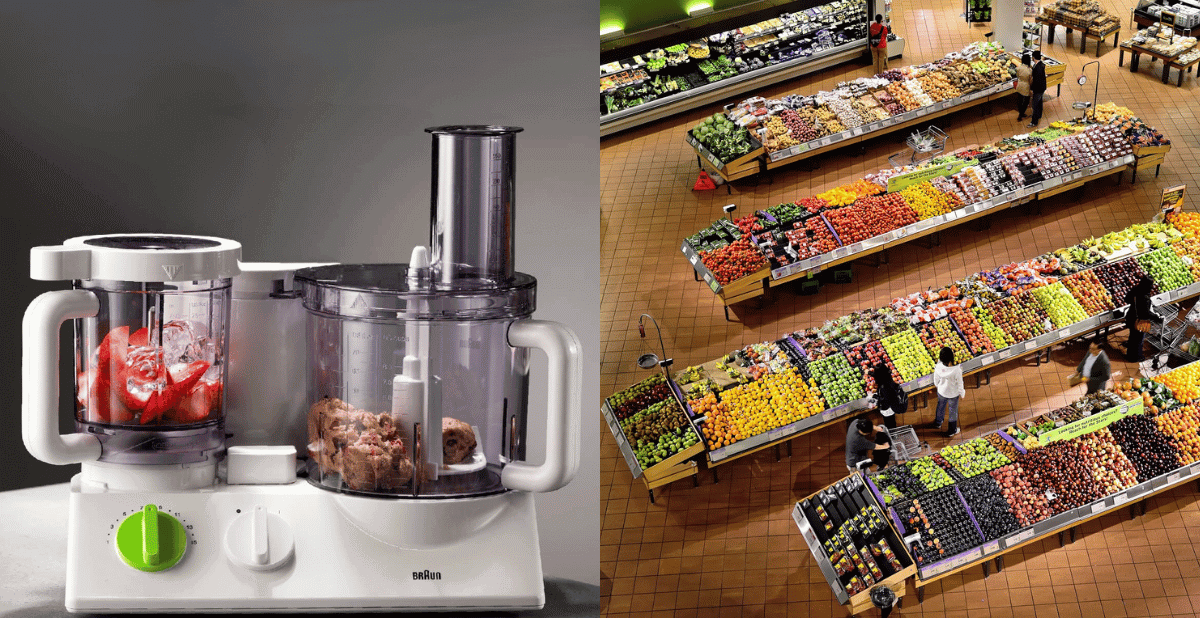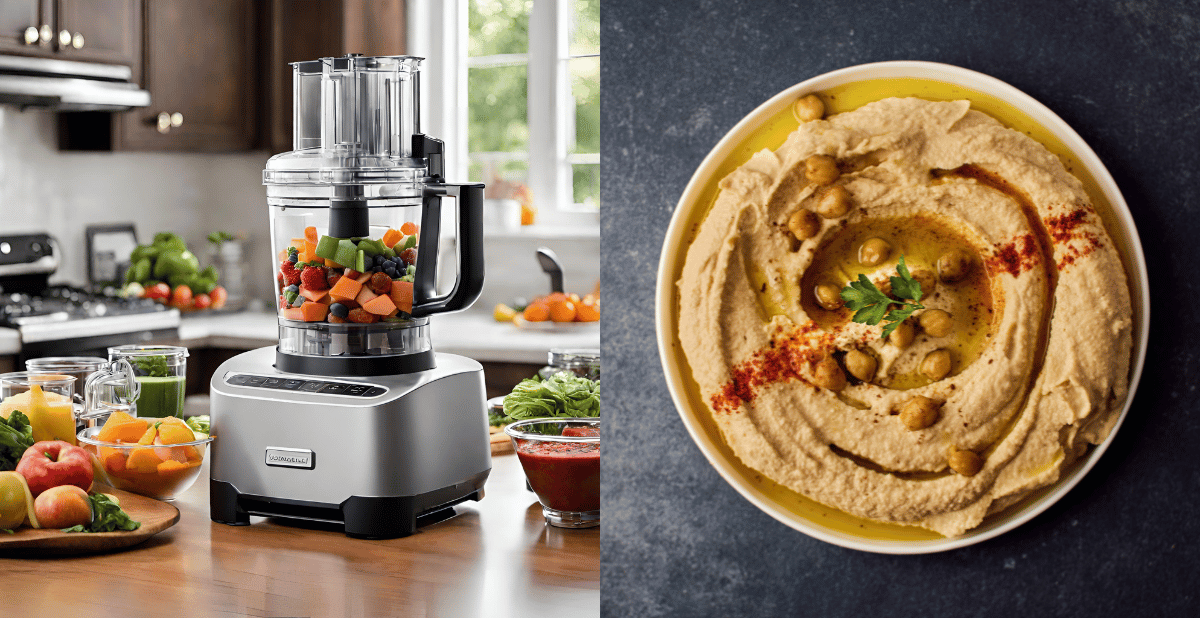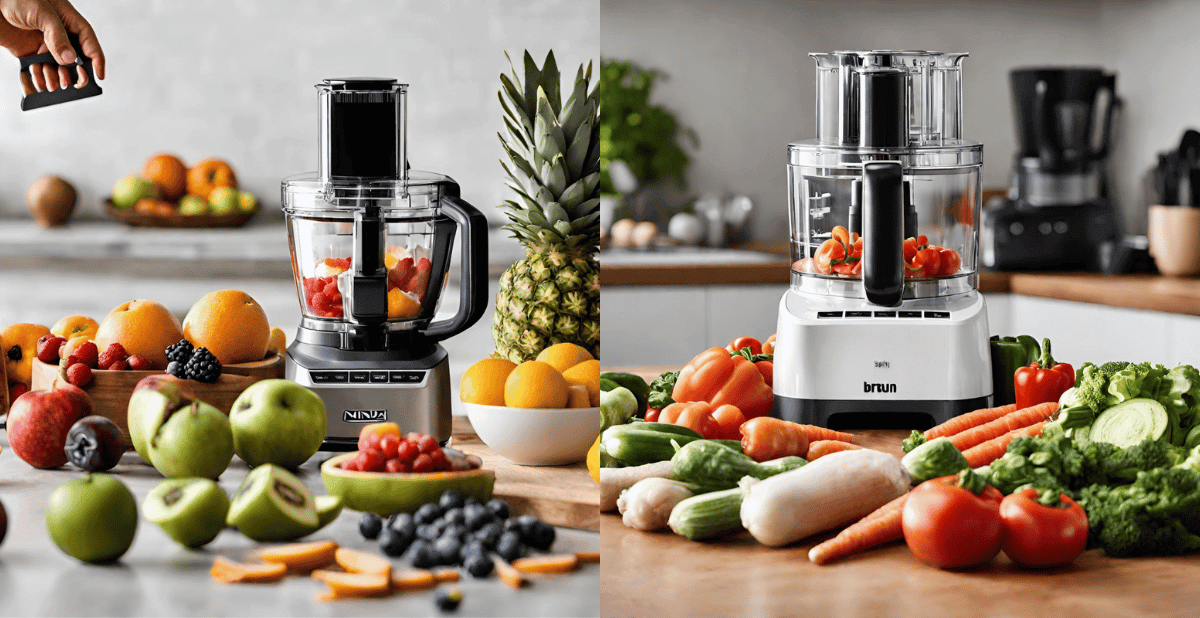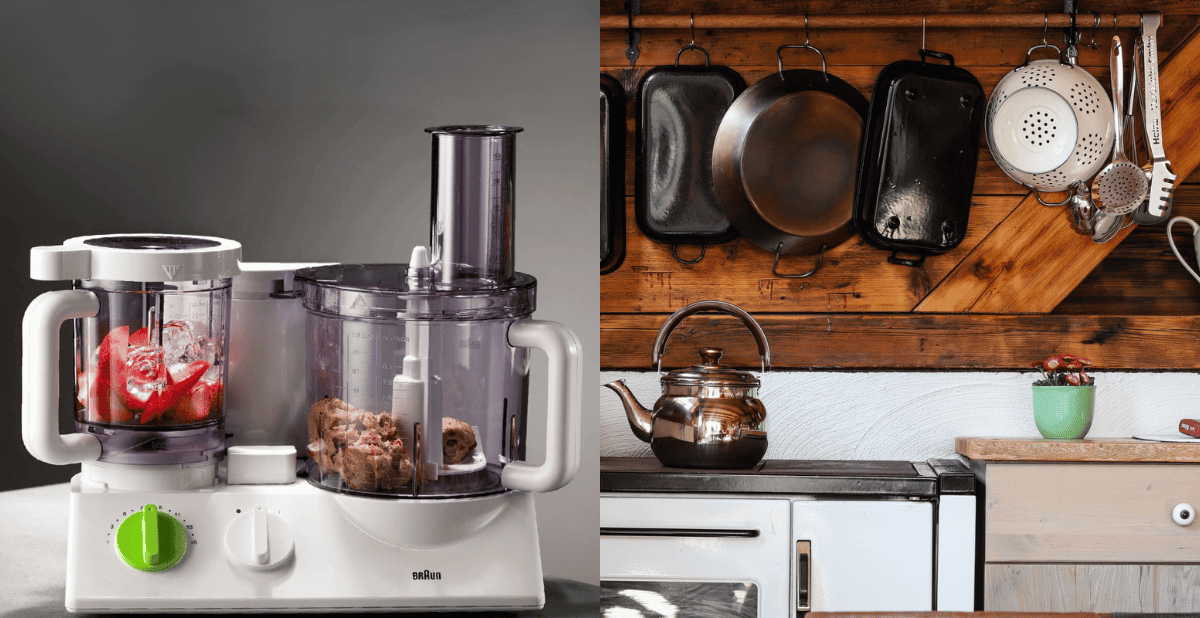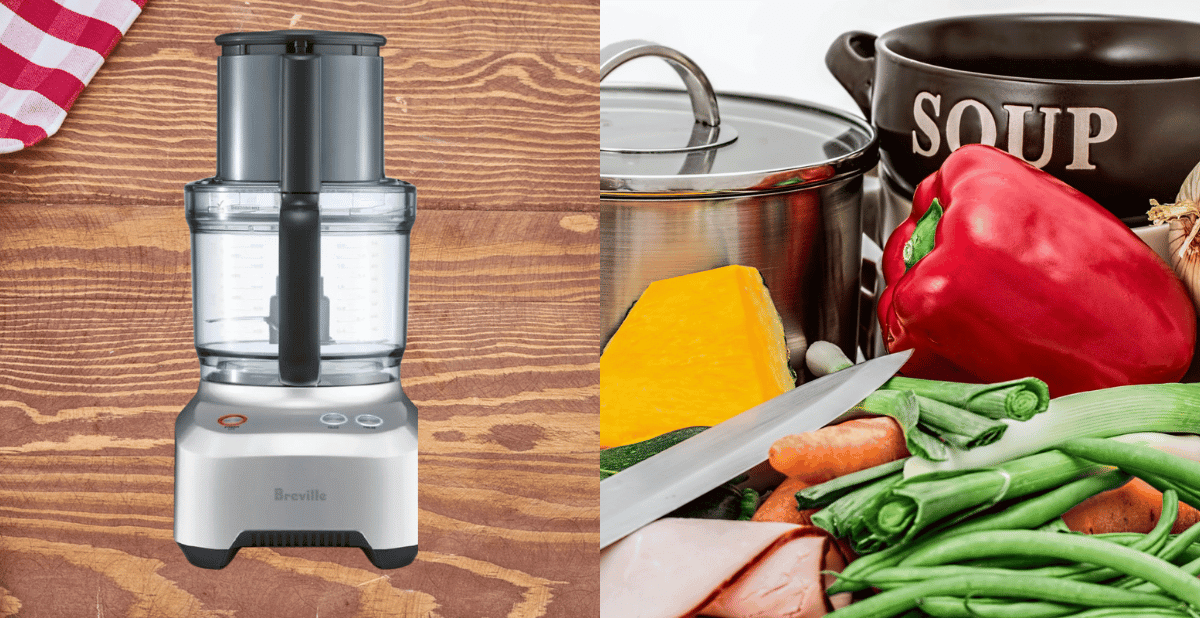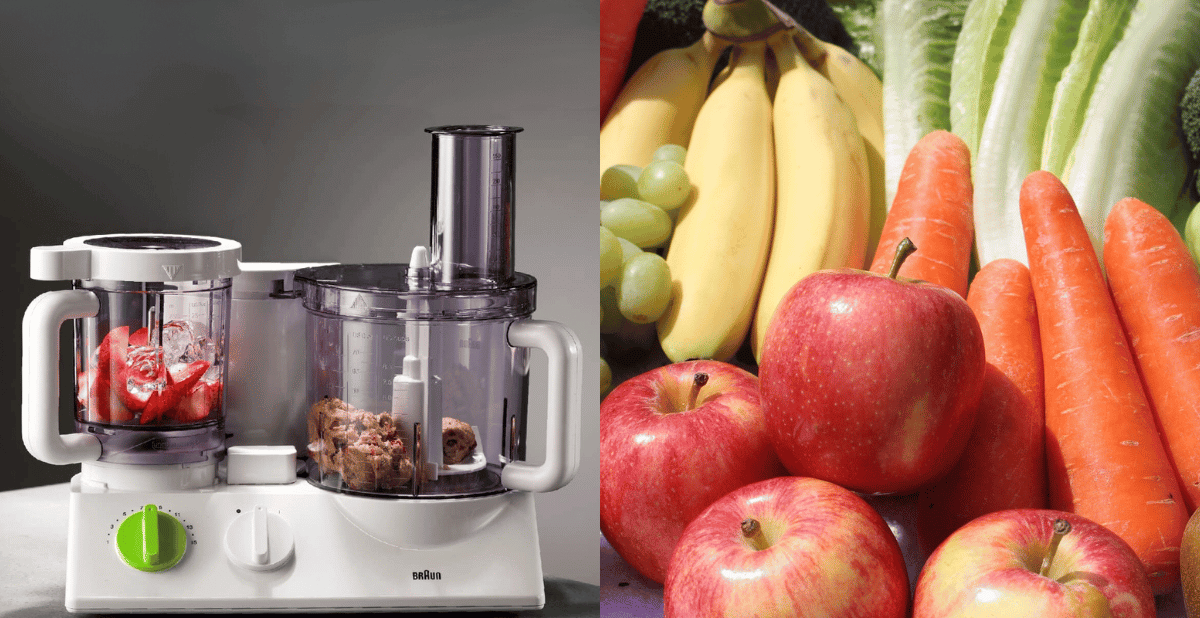I have heard the Braun name for years. Are Braun Food Processors made in Germany? Let's find out! I'm still searching, too!💖
Key Takeaways:
- Understand the origins of Braun food processors and their manufacturing locations.
- Discover the unique features of Braun food processors, such as dual control technology and compact design.
- Learn how to determine the authenticity and origin of your kitchen appliances.

The Heritage of Braun Food Processors
When equipping your kitchen with top-notch appliances, the origin of a product can be a significant factor.
Braun, a brand synonymous with quality and innovation, has been a go-to for many when choosing a food processor.
But are these culinary aids made in Germany, where Braun was founded?
Let's delve into the heritage of Braun food processors to uncover their true manufacturing roots.
Braun has a storied history dates back to the 1920s in Frankfurt, Germany.
Over the years, the brand has become known for its sleek design and reliable performance.
The question of whether their food processors are still made in Germany today is one that many consumers ask, especially those who value the craftsmanship associated with German engineering.

The Manufacturing Journey of a Braun Food Processor
The journey of a Braun food processor from concept to kitchen counter is a testament to the brand's commitment to quality.
While Braun originated in Germany and developed its reputation there, globalization has affected where its products are manufactured.
To understand where Braun food processors are made, it's essential to look at the company's current ownership and global manufacturing strategies.
Braun is now part of the De'Longhi Group, which has a diverse portfolio of brands and a global presence.
This change in ownership has led to a more international approach to manufacturing.
While some components may still be produced in Germany, others could be sourced from different countries to optimize efficiency and cost-effectiveness.

The Features That Define Braun Food Processors
Braun food processors are not just about where they are made but also about the innovation they bring to your kitchen.
Features like dual control technology allow for precision and versatility, adapting the speed to the task.
The compact feature of these machines means they can easily find a home on any kitchen counter without taking up too much space.
Attachments like the citrus juicer and french fry disc made Braun food processors multifunctional, turning them into a juice extractor or a chopping blade wizard in no time.
These features are a testament to the brand's German engineering heritage, regardless of where the final assembly occurs.

The Global Market Influence on Braun Food Processors
When considering the purchase of a Braun food processor, it's essential to understand how the global market has influenced its production and distribution.
Braun, a brand that has long been associated with high-quality German engineering, has had to adapt to the ever-changing landscape of global manufacturing.
This adaptation often means that while design and engineering may still be rooted in Germany, production could take place elsewhere to optimize costs and efficiency.
This strategy allows Braun to remain competitive and sell their products effectively in a crowded market.
Moreover, the ability to sell g has necessitated Braun to comply with various international standards and regulations.
This compliance ensures that regardless of where the food processors are made, they maintain the high-quality standards that consumers expect from the Braun name.
The brand's commitment to quality and strategic global manufacturing means that consumers can enjoy the benefits of German engineering without necessarily having the product made in Germany.

The Role of Consumer Demand in Shaping Braun's Offerings
Consumer demand plays a pivotal role in shaping the products that companies like Braun bring to market.
As consumers become more knowledgeable and discerning, they look for appliances that perform well and align with their lifestyle and values.
Braun has responded to this by continuously innovating and updating their food processors to sell features catering to modern consumers' needs.
From multifunctionality to ease of use and cleaning, Braun ensures that their offerings meet the high expectations of today's customers.
In addition to performance, consumers are increasingly looking for sustainably produced products.
Braun's approach to meeting this demand involves evaluating its manufacturing processes and supply chain to minimize environmental impact.
By doing so, they sell a product and a promise of responsibility towards the planet.
This commitment to sustainability is becoming a significant factor for consumers when purchasing decisions, and Braun is keenly aware of its importance in maintaining its market position.

Identifying the Origin: Labels and Descriptions
When you're at the checkout, eager to bring home a new food processor, you might wonder how to verify its origin.
The description on the box or the product listing online may provide some clues. Could you look for labels that indicate the country of manufacture?
It's worth noting that even if a product is assembled in one country, its components could come from various places.
The feedback from other customers can also be insightful.
Many buyers are keen on sharing their findings about the product's origin in their reviews.
Scanning the past month's feedback on a seller's page could reveal whether others have confirmed the German manufacturing of the food processor you're eyeing.

The Economic Perspective: Cost and Quality
From an economic standpoint, whether Braun food processors are made in Germany can influence a buyer's decision.
German-made products are often associated with higher quality but can also come with a higher price tag.
If Braun has shifted some of its production to other countries, it could be a move to balance quality with cost, making their food processors more accessible without compromising their renowned functions.
However, it's crucial to remember that its country of origin does not solely determine the value of a machine.
The technology, durability, and after-sales support play significant roles in ensuring you get your money's worth from a food processor.

The Environmental and Ethical Considerations
In today's world, the environmental and ethical implications of manufacturing are increasingly important to consumers.
Braun's commitment to sustainability and fair labor practices is part of its brand ethos.
Whether a food processor is made in Germany or elsewhere, the company's standards for responsible production are designed to be upheld across all their manufacturing sites.
This means that when you purchase a Braun food processor, you're not just buying a kitchen appliance but also supporting a brand that values ethical manufacturing processes.
This can be a significant factor for consumers who prioritize these aspects when purchasing.

The Bottom Line: Quality Over Geography
Ultimately, whether Braun food processors are made in Germany may not be as crucial as the quality and performance of the product itself.
Braun has built a reputation for creating reliable, high-performing food processors that cater to various kitchen needs.
Whether it's the quantity of meat you need to process or the desire for a machine with a specific function, the brand's legacy of quality stands out.
The compact design and innovative features like the dual control technology make Braun food processors a worthy addition to any kitchen.
These characteristics are rooted in the brand's German heritage, even if the p happens elsewhere.

Summary
Braun food processors carry a legacy of German engineering, but their manufacturing locations may vary due to global production strategies.
The brand's commitment to quality, innovation, and ethical practices remains steadfast, regardless of geography.
When choosing a Braun food processor, consider the features, performance, and the brand's values, which often indicate the product's worth more than its country of origin.
Braun FAQs
Can I still expect German quality from Braun food processors if they're not made in Germany?
Yes, Braun is committed to maintaining high-quality standards and innovative features like dual control technology in their food processors, regardless of the manufacturing location.
How can I find out where a specific Braun food processor model is made?
Check the product description, packaging, or online seller's listing for the country of origin.
Customer feedback and reviews may also provide information about the manufacturing location.

Until Next Time...
In conclusion, the question of whether Braun Food Processors are made in Germany has been thoroughly explored in this article.
While Braun is a renowned brand known for its German engineering and quality, it's important to note that the production and assembly of its appliances may have changed over the years.
It's always a good idea for consumers to check the specific model and its manufacturing details to ensure they get the desired product.
Whether your Braun Food Processor is made in Germany or elsewhere, what matters most is its performance and reliability in the kitchen, and Braun has a long-standing reputation for delivering on these fronts.
Thank you for stopping by,
MommaPuff





